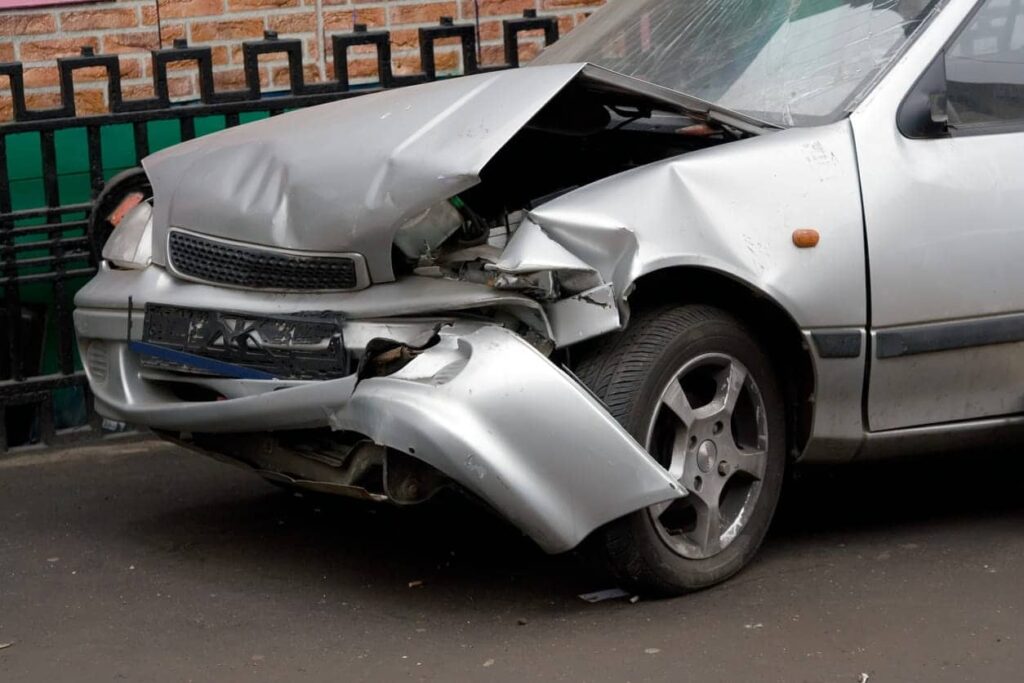If you were injured in a car accident, you may be wondering if you can sue the responsible party and how much you can expect if you decide to take legal action. Overall, the amount you can receive from a car accident lawsuit will depend on several factors. You may be able to claim compensation for damages like medical bills, lost income, and pain and suffering. However, if your injuries are severe, you may receive much more than someone with minor losses.
Our car accident attorneys explain how much you can sue for an auto accident in Tampa, Florida.
What is the difference between an accident claim and a lawsuit?
While “claim” and “lawsuit” are often used interchangeably, there is a difference between the two terms. A claim is a type of request from an accident victim for compensation for their losses. An injured person can ask the at-fault party to pay for their damages without initiating a lawsuit. Typically, this is done by making a claim through insurance.
Many insurance claims are resolved without filing a lawsuit or going to court. However, some accident victims must bring a lawsuit to get fair compensation for their damages. If the insurance company does not want to pay a fair settlement amount, the victim may need to sue the insurance company or the at-fault person.
A car accident lawsuit will include a personal injury claim for damages that shows:
- Why you are entitled to compensation
- What damages you are seeking
An experienced car accident lawyer can help you understand your legal options and whether you qualify to sue the person responsible for the crash. A legal professional can also break down how much your claim may be worth and what a fair settlement amount looks like.
Who is liable for a car accident?
The party at fault for a car accident will depend on the circumstances of the crash and what led up to the collision. If you can prove that your accident resulted from negligence, the negligent party may be liable for damages.
At-fault driver
All drivers have a duty to follow the rules of the road and operate their vehicles safely. If a driver fails to exercise reasonable care while driving and causes an accident, they may be responsible for your damages.
At-fault driver’s insurance company
Under Florida’s no-fault law, people injured in a car accident must file a claim for damages with their own insurance company. However, you may seek damages from the at-fault driver’s insurance if your policy does not cover all your losses and you suffered significant injuries. Consult a Florida car accident attorney to learn more.
Your auto insurance company
Florida requires all drivers to have a personal injury protection (PIP) policy that will cover a portion of expenses — no matter who is at fault for the accident. You must first file a claim with your insurance provider to cover your losses from the crash. Depending on your situation, you may also qualify to claim uninsured/underinsured motorist coverage or file a lawsuit to claim compensation for damages caused by the accident.
Florida’s personal injury protection (PIP) insurance law
FLA. STAT § 627.736 (2023) requires Florida drivers to purchase PIP insurance. According to Florida Highway Safety and Motor Vehicles (FLHSMV), PIP must cover 80% of necessary and reasonable medical bills up to $10,000, regardless of who caused the accident. FLHSMV also outlines the requirements for registered Florida vehicles as follows:
- Must have PIP insurance when registering the vehicle
- Have a minimum PIP coverage of $10,000
- Maintain continuous coverage even if the vehicle is inoperable or not being driven at that time
- Must purchase the PIP policy from a Florida insurance carrier licensed to do business in the state
- Have continuous Florida PIP coverage regardless of location
If you are found in violation of the Florida PIP insurance law, you run the risk of having your driver’s license or registration suspended and paying a fee to have them reinstated.
Statute of limitations on car accident damages in Florida
Florida’s statute of limitation for any personal injury claim, including car accident claims, is generally four years from the date the accident occurred. This means auto accident victims will need to claim compensation for damages before the deadline of four years expires. After that time, they forfeit the right to recover damages that resulted from the car crash.
Is Florida a comparative negligence state?
Yes, Florida is a comparative negligence state. However, the law was recently changed to a modified comparative negligence standard rather than pure comparative negligence. Under comparative negligence, accident victims are able to claim compensation for damages, even if they are partially at fault for the crash. However, the amount they receive is reduced by the percentage of fault they carry.
With a modified comparative negligence standard, victims may only recover damages if they are deemed 50% or less at fault for the accident. If the injured person is more than 50% responsible for the crash, they are not able to take legal action and recover damages. If you’re unsure of your role in your car accident, contact an experienced car accident lawyer to better understand your rights.
Proving fault in a car accident
Determining fault for a car accident and filing a lawsuit can be complex. You must prove all the elements of negligence to identify the responsible party and be eligible to receive compensation for your losses, including:
- Duty of care: You need to show that the responsible party had a duty to you
- Breach of duty: Next, there must be clear evidence of that person breaching their duty. For example, a driver may have run a red light. They were acting carelessly and failed in their duty to drive safely.
- Causation: The breach of duty must have caused the accident that led to your injuries in order to move forward with your claim
- Damages: Lastly, you need to prove that you suffered injuries and damages as a result of the accident
A car accident lawyer will conduct a full investigation of the accident to gather crucial evidence to support your claim. Examples include:
- Police reports
- Photos and video footage of the crash site
- Medical records
- Witness statements
What damages can be recovered after a car accident?
Car accident victims can claim compensation for all the ways they’ve suffered due to the crash. While some damages are easy to calculate, others are not as straightforward. For example, medical costs have a clear monetary value attached to them, while the victim’s emotional distress does not come with an itemized bill. However, both are real and cause hardships for victims and their families.
If you were injured in a crash, you may qualify to recover these damages:
Economic
- Current medical bills
- Cost of future medical care
- Lost wages
- Loss of future earnings capacity
- Vehicle repair costs and other property damage
- Cost of medical equipment
- Cost of transportation to doctor’s appointments
Non-Economic
- Pain and suffering
- Mental anguish
- Post-traumatic stress disorder (PTSD)
- Loss of companionship
- Loss of enjoyment of life
- Loss of consortium
- Scarring or disfigurement
The compensation you can claim for these losses will vary depending on the severity of your injuries and how they affect your life. Victims who suffer catastrophic injuries that alter their lives can sue for a much more significant amount than someone involved in a Tampa fender bender. You should work with a skilled Tampa car crash attorney to identify your damages and claim the maximum amount available under the law.
How can a car accident attorney help me?
Insurance companies often use tactics that minimize the claimant’s damages in an attempt to pay less than they deserve. If the insurance company denies your claim or offers an unfair settlement, you can work with a car accident lawyer to fight back. Your attorney will:
- Provide legal guidance and support throughout the claims process
- Communicate with the insurance companies on your behalf
- Conduct a thorough investigation of the accident
- Gather important evidence to build a strong case
- Work with expert witnesses to further support your claim
- Negotiate a favorable settlement with insurance adjusters
- If necessary, take your car accident claim to court
A car accident can have devastating consequences for victims and their loved ones. However, you shouldn’t have to carry the financial burden if another person’s negligence caused the crash. Contact our Tampa car accident lawyers at Jack Berstein, Injury Attorneys, to schedule a free consultation with our team today.


